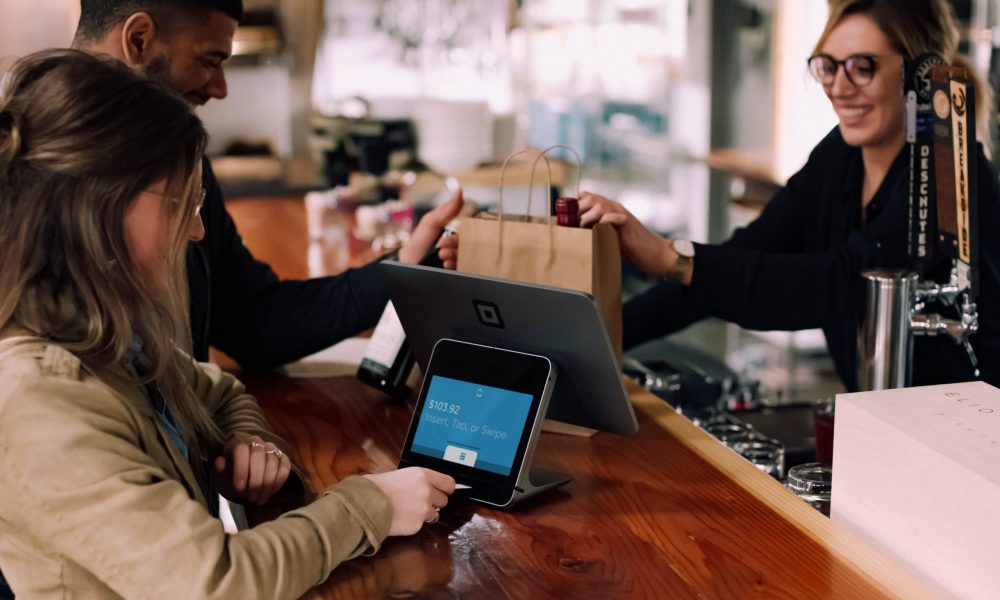For most of us, predicting the spending patterns of our families is difficult enough, so it’s clearly not easy to guestimate how we as a society will be parting with our hard-earned cash in the coming years. Here at Rosy Towers, however, we’ve always liked a challenge, so here’s a look at how we see the UK’s buying habits of the future, with help from our trusty crystal ball and a great deal of web-based research.
The vast majority of people in Britain and beyond will have changed their habits in two significant ways since the pandemic came along. Firstly, they will have used their credit and debit cards instead of cash far more often than they once did. Many of us can now go days, maybe even weeks, without buying anything with notes or coins. Card payments are simpler and faster than they used to be, and of course more retailers than ever before are accepting card payments now. Secondly, we head to online retailers than before.
There was a time when most of us would be heading to the cash machine every few days to make sure we had enough money to get by, but with the increasing amount of card payments being made your local ATM is becoming lonelier than a coffee machine in the desert. There’s a chance that we could even see the number of cash machines in the UK actually start to reduce; who would have predicted that a decade or so ago?
Another noticeable trend in the Covid era has been in regard to where we actually do our shopping. The move away from the high streets and towards online retailers was already under way before the pandemic, of course, but the momentum of this development was perhaps made significantly quicker due to the limitations of the various lockdowns and tiered restrictions. Those retailers that didn’t have an all-singing, all-dancing website were clearly caught out by the speed of this process.
Will the high street ever be the same again?
And while we all mourn the reduction in the importance of our high street shops, every cloud, as ever, has a silver lining. That silver lining has been particularly felt by online retailers such as Amazon and ASOS, and by anyone who wants to work as a parcel courier. In recent times, we’ve lost many once-loved high street names, including Mothercare, Dixons, Woolworths, Thomas Cook and Staples. It’s difficult to imagine consumers gazing into space and sighing with pleasure for the likes of DHL, Yodel and FedEx.
According to data supplied by Statista.com, the percentage of online sales in the UK rose to as high as 37% in January 2021, but has fallen somewhat (around 27% a year later) after restrictions came to an end. This might sound like good news for high street retailers, but it’s worth noting that only as far back as January 2018 they were just at the 17% mark. The move towards online purchasing is clearly a slowing trend, but a trend nonetheless.
The repercussions of a global pandemic will still be felt long after the Covid virus has gradually faded away, it’s thought, and that includes those times when you venture out for some retail therapy. Many shops are already allocating more space for customers to queue before paying, in order to accommodate social distancing, and we’ve all become more used to seeing hand sanitiser stations in stores of all shapes and sizes.
And the trend towards a more contactless shopping experience will feature other developments. A growing number of bathrooms offer contactless washing and drying of hands, for example, and having the ability to pay for goods via your mobile phone means you don’t have to touch keypads that others have come into contact with. Handheld scanners are a common sight in supermarkets now, and in 2021 Amazon opened its first Amazon Fresh store in the UK, a place in which there are no tills and customers pay a bill that is emailed to them automatically after the shopping has concluded. The future, let’s face it, is already here.
Rose Media Group was founded by Aneela Rose, and has been operating in West Sussex for many years. We provide B2B PR for companies in a range of industry sectors, including aviation, engineering and automotive. To find out more, call the team today on 01444 241 341.









